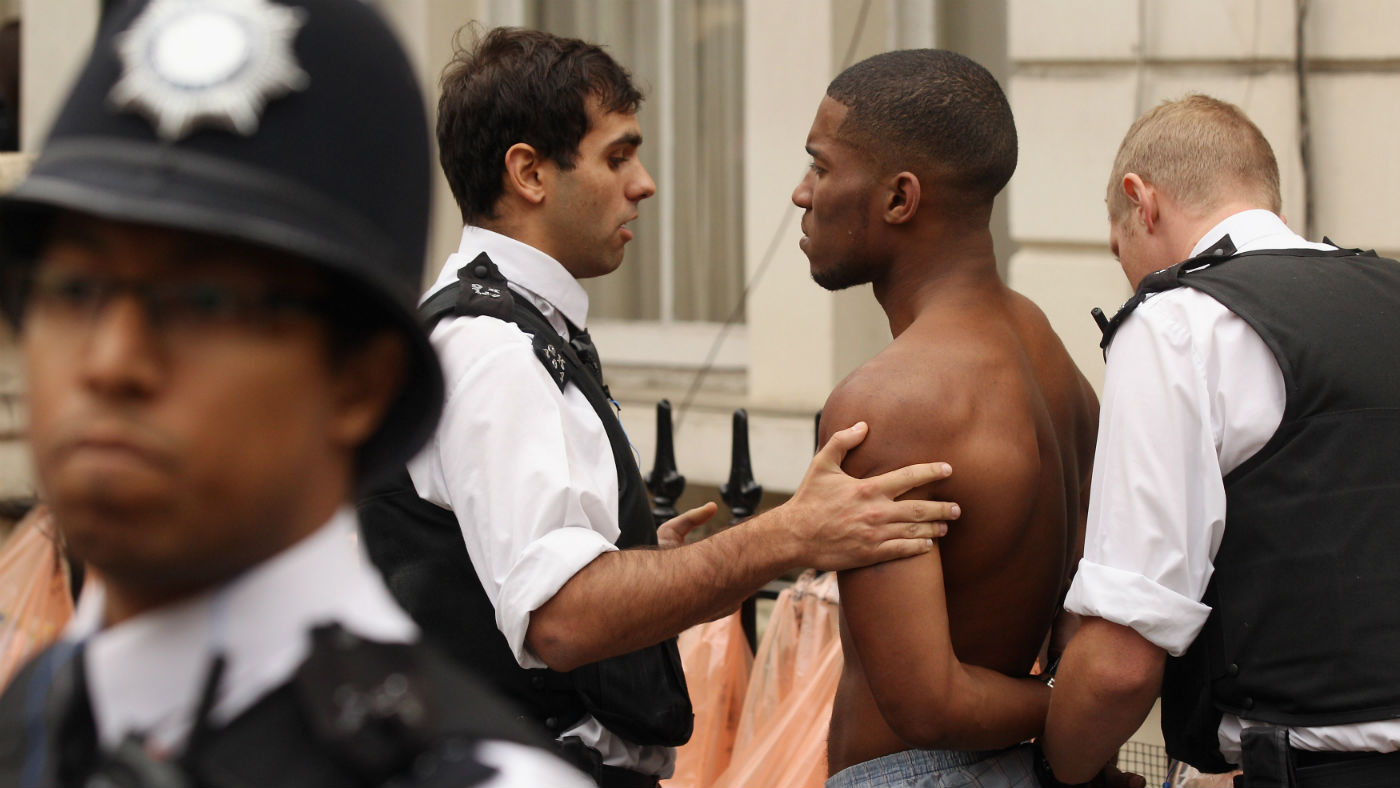Stop and search ‘colour discrepancy’ laid bare
Black people eight times more likely to be searched, though white people were more often found to carry drugs

A free daily email with the biggest news stories of the day – and the best features from TheWeek.com
You are now subscribed
Your newsletter sign-up was successful
Black people are eight times more likely to be stopped and searched than white people, even though white people are more likely to be carrying drugs.
That is just one of the “troubling” findings on stop-and-search practices in a new report by the police watchdog into the legitimacy of policing across England and Wales.
HM Inspectorate of Constabulary found a third of white suspects searched for drugs were carrying them, compared to a quarter of black people.
The Week
Escape your echo chamber. Get the facts behind the news, plus analysis from multiple perspectives.

Sign up for The Week's Free Newsletters
From our morning news briefing to a weekly Good News Newsletter, get the best of The Week delivered directly to your inbox.
From our morning news briefing to a weekly Good News Newsletter, get the best of The Week delivered directly to your inbox.
The report said this discrepancy may be because black people are subjected to “weaker grounds for suspicion” than white people, “particularly in respect of drugs”. Police officials have warned that the disproportionate use of stop and search powers on black, Asian and ethnic minority people is “threatening public trust and confidence in the police” and recommended forces should implement further training to “tackle unconscious bias”.
The London Evening Standard says stop and search has “repeatedly attracted controversy”, prompting the then home secretary Theresa May to introduce reforms in 2014 to ensure the tactic was used in a more targeted way.
“The debate about whether the use of stop and search powers is effective comes amid a rise in violent crime, particularly knife and gun crime,” says The Times.
Officers can only stop and search people if they have “reasonable grounds” to suspect they are carrying illegal items such as drugs, weapons or stolen property. A Home Office study of London boroughs released last year found that “surge” tactics, in which massive increases in stops were used, found “no statistically significant crime-reducing effect”.
A free daily email with the biggest news stories of the day – and the best features from TheWeek.com